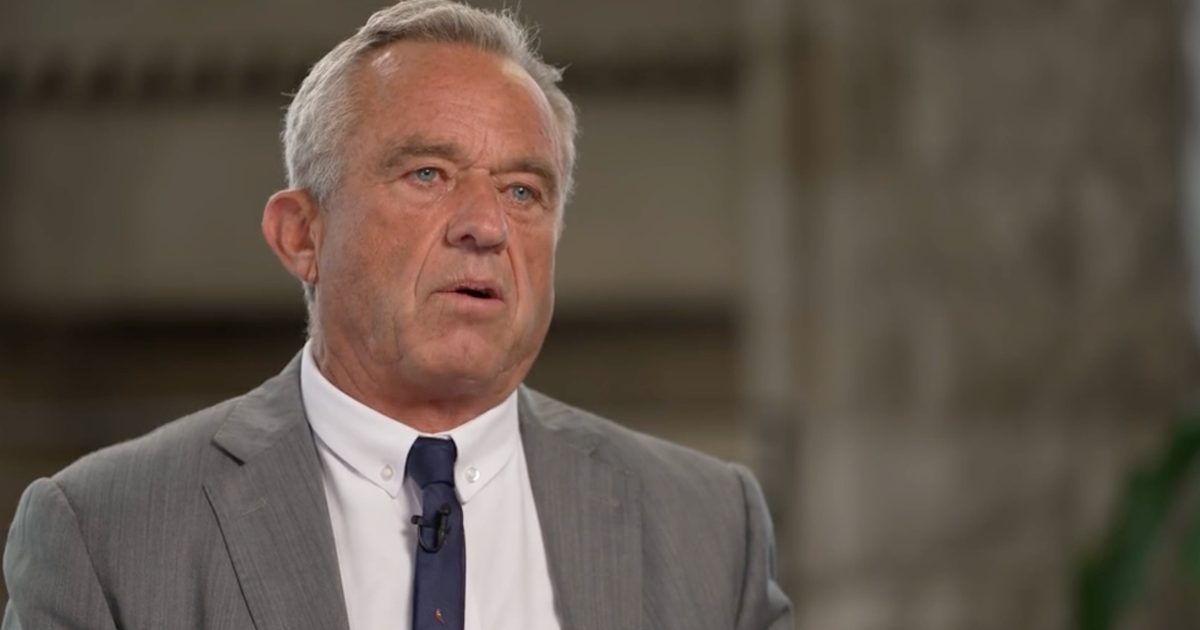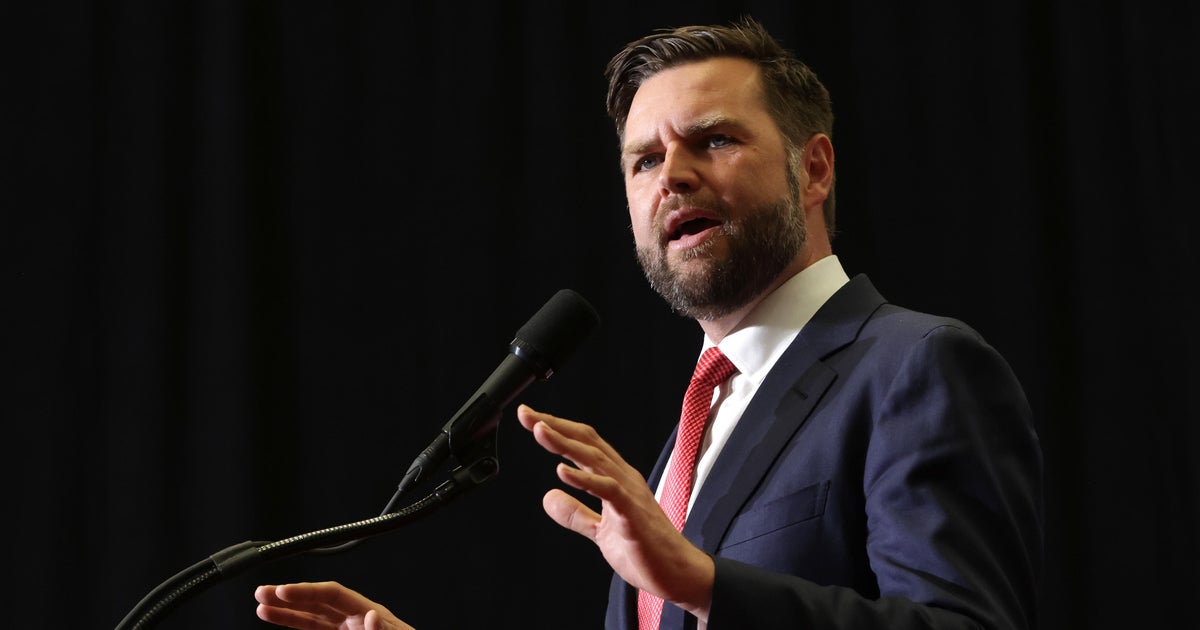Transcript: Avril Benoit, Doctors Without Borders executive director, and Janti Soeripto, Save the Children president, on "Face the Nation," April 7, 2024
The following is a transcript of an interview with Avril Benoit, Doctors Without Borders executive director, and Janti Soeripto, Save the Children president, that aired on April 7, 2024.
MARGARET BRENNAN: Over 200 humanitarian aid workers have been killed in Gaza since October 7. We're joined by the executive director of Doctors Without Borders in the U.S., Avril Benoît, she joins us from New York City; and Save the Children President Janti Soeripto is back with us here in Washington. And I want to say condolences to both of you and your organizations for the workers that you've lost in this conflict. And I appreciate you being here with us. Janti Soeripto, you testified before the UN just this week about this ongoing problem. You said more children have been killed in this conflict than have been killed in all armed conflicts globally, every year, over the past four years.
SAVE THE CHILDREN PRESIDENT AND CEO, JANTI SOERIPTO: Yeah. I know, Margaret. It sounds almost unbelievable when- when you say it out loud. And--
MARGARET BRENNAN: It's horrific.
JANTI SOERIPTO: It is horrific. And it is- and people stop- stop hearing, I think, when they- we hear all those numbers. Thousands. And they forget that behind every- all those thousands, there is a child and their families behind it.
MARGARET BRENNAN: Children. And Avril Benoît, I want to go to you on this, because you and the people who you work with provide help, medical aid, to those who are injured, who might be able to survive what is happening there. I want to ask you why you think we've seen this outcry this week in the wake of the killing of the 7 World Central Kitchen workers, including an American, but we didn't hear the same after 225 aid workers were killed. Why do you think that is?
DOCTORS WITHOUT BORDERS USA EXECUTIVE DIRECTOR, AVRIL BENOÎT: It- it certainly warrants an outcry. And it warrants an outcry every time these things happen. Not only have we seen so many civilians killed and injured, 33,000 killed, roughly 75,000 people injured, and it's proportionate to the population. So the- in terms of the number of children, women who are injured and killed, it's very matching. And so you- you ask yourself, is this a war against Hamas, or a war against civilians? And among the civilians, we also have a pattern of attacks against journalists. And we see a pattern also of attacks against aid workers, who are there to do nothing more than alleviate suffering and save lives. In our case, Doctors Without Borders has lost five colleagues. And they were in situations in some cases where they were literally at the bedside of patients in hospitals when they were killed.
MARGARET BRENNAN: I'll be less diplomatic. Do you think that there wasn't an outcry because these weren't Westerners?
AVRIL BENOÎT: No doubt, the fact that World Central Kitchen, the victims of the attack, were internationals is the kind of thing that attracts more attention, it certainly finally attracted the attention of President Biden. And that, of course, should concern us all, because every life should be considered of similar value, of great value, whether it's a Westerner or a Palestinian. And- and so you can draw conclusions. We certainly are concerned about the fact that it took this attack for there to be the kind of international outcry that we've seen, although frankly, we do think it's warranted. There has been in this incident, just- you know, a sense that it was just an accident, that it was an isolated event. And that is far from being the case when you actually look at the pattern of attacks on aid workers thus far.
MARGARET BRENNAN: That is why I asked John Kirby about that pattern. And if there was evidence of what you say, that it was deliberate. And Janti, you said this week, at the UN as well, that this is not just about dehumanizing the victims, it dehumanize- dehumanizes all of us. Explain what you mean, for people who think this is far away and doesn't matter to them.
JANTI SOERIPTO: I think, you know, the fact that these, yes, attacks on aid workers, attacks on schools, on- on hospitals, to Avril's point, is continually allowed to happen. I mean, there are rules of war. Even in war there are rules. There are laws against this wanton destruction of homes, of schools, of hospitals, the killing of civilians. And we're just watching this unfold. And I do think that it is dehumanizing for all of us. Even more so for us, actually, than it is of the civilians caught up in this horrific conflict.
MARGARET BRENNAN: Secretary Blinken did lay out specific metrics, in terms of not just trucks, but aid workers getting in, and he also said the reversal of some of the measurable impacts of famine, that takes time. How long does it take to reverse a famine?
JANTI SOERIPTO: Well, I guess the- the answer is always: it depends. You know, how much unfettered access can we get? How much supplies are we going to have allowed in? It is great to hear some more outrage from the President and from Secretary Blinken. And yet, despite that outrage, the next day, we signed off more arms to go to Israel. So, you know, I would love to see some action behind those words, because we're not seeing it on the ground. We are not seeing more supplies coming in. We're now hearing noises about crossings, more crossings opening, potentially better access to the north from the south. That would all be incredibly welcome. Long, long overdue, but very welcome. We have yet to see some of that really happen on the ground. And- and to see more details when this Erez crossing is actually opening, for whom it is opening, when the port can be ready. But actually, there are thousands of trucks with food and water and medical supplies on the border in Rafah. I saw it myself two weeks ago. Thousands of trucks waiting. You can just let them in.
MARGARET BRENNAN: That's a political decision.
JANTI SOERIPTO: That's right.
MARGARET BRENNAN: Avril, before I let you go, your organization's asking for an investigation into the deaths of your workers. Why hasn't there been a response?
AVRIL BENOÎT: Well, there hasn't been a response because what we have seen time and again for the last six months, is that Israel is conducting this war in a way that completely disregards the need to protect civilians at all costs. I mean, there is- there are norms of war, the Geneva Conventions, international humanitarian law, and we see systematically that this is disrespected. So we would expect an answer on that. But just on the question of- of the famine and acute malnutrition, it's a medical condition at this point. It's a- it's a slow motion massacre of people to subject them to the kind of deprivation of food and water that they have been subjected to for the last six months. It requires a medical response, massive influx, not just of food, of trucks, of flour, of lentils, but of medicines and of trained personnel who know how to bring a child who is in complete organ failure back to health after suffering this kind of malnutrition.
MARGARET BRENNAN: Thank you both for joining us today. We'll be back in a moment.



